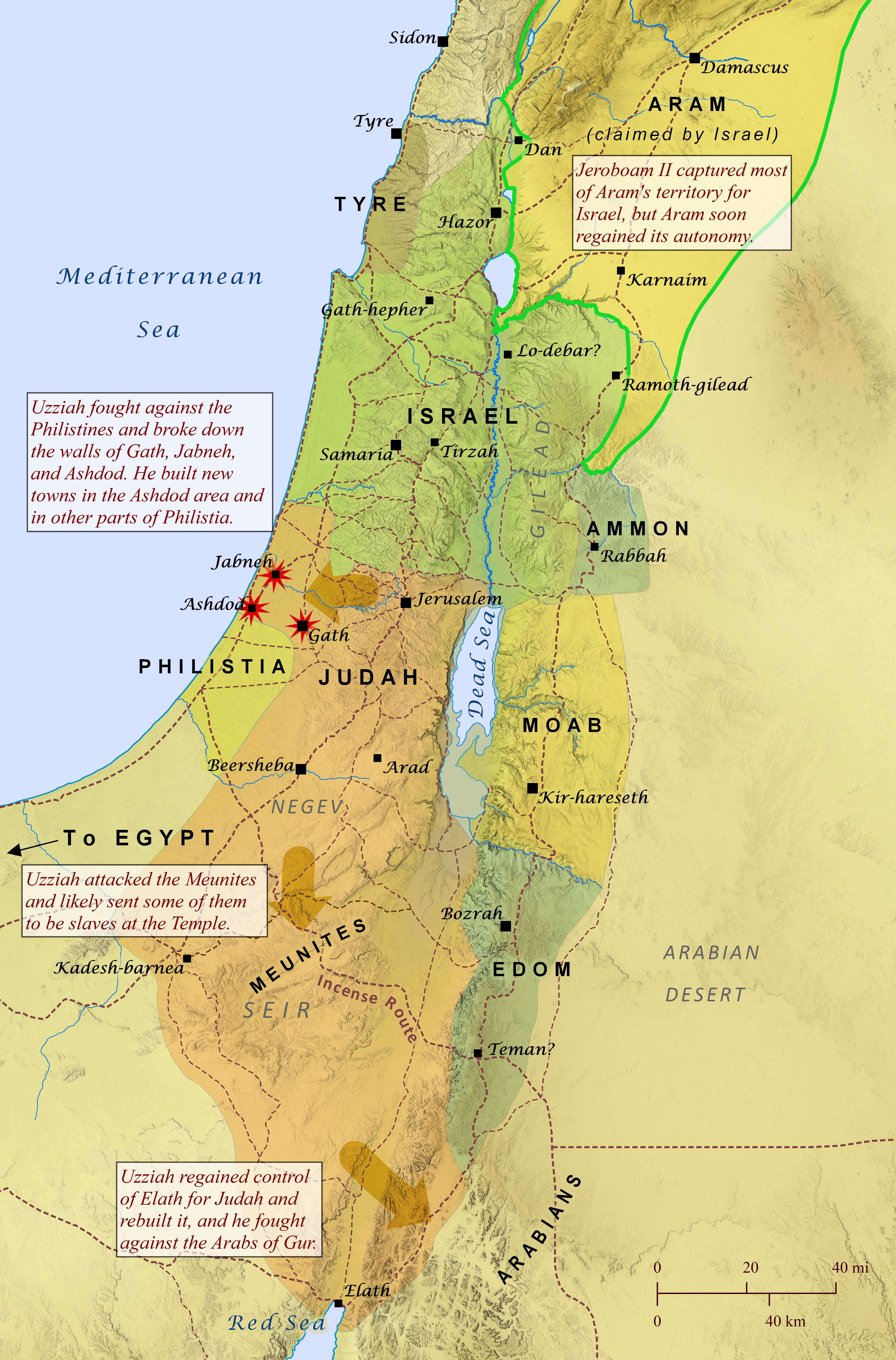Readers’ Version
Literal Version
15 In the twenty-seventh year of King Yarave’am’s reign over Yisrael, Amatsyah’s son Azaryah[fn] became king of Yehudah. 2 He was sixteen when he became king, and he reigned from Yerushalem for fifty-two years. (His mother’s name was Jeholyah from Yerushalem.) 3 He did what Yahweh had said was correct behaviour like his father Amatsyah had done, 4 although the hilltop shrines weren’t removed—the people continued to sacrifice at them and burn incense. 5 Yahweh caused Azaryah to become a leper and he had to live separately from others for the rest of his life, so his son Yotam ran the palace and dealt with the people’s problems.
6 Everything else that Azaryah said and did is written in the book of the events of the kings of Yehudah. 7 Azaryah died and was buried in the ancestral tomb in the city of David, and his son Yotam replaced him as king.[ref]
15:1 Azaryah was also known as Uzziyah, especially from v13 onwards.
2 A_son_of six- teen year[s] he_was in/on/at/with_became_king_he and_fifty and_two year[s] he_reigned in/on/at/with_Yərūshālam/(Jerusalem) and_name_of his/its_mother was_Yəkāləyāh/(Jecholiah) of_Yərūshālam/(Jerusalem).
3 And_he/it_made the_right in/on_both_eyes_of YHWH according_to_all that he_had_done ʼAmaʦyāh his/its_father.
4 Only the_high_places not they_were_removed still the_people were_sacrificing and_burning_incense in/on/at/with_high_places.
5 And_ YHWH _struck DOM the_king and_he/it_was one_who_had_a_skin_disease until the_day_of death_of_his and_he/it_sat_down//remained//lived in_house_of the_separate and_Yōtām/(Jotham) the_son_of the_king was_over the_household he_was_judging DOM the_people_of the_earth/land.
6 And_rest_of the_matters_of ˊAzaryāh and_all that he_did not are_they written on the_scroll_of the_matters_of the_days of_kings_of of_Yəhūdāh.
7 And_ ˊAzaryāh _slept with fathers_of_his and_buried DOM_him/it with fathers_of_his in/on/at/with_city_of Dāvid and_ Yōtām _became_king his/its_son in_place_his.

